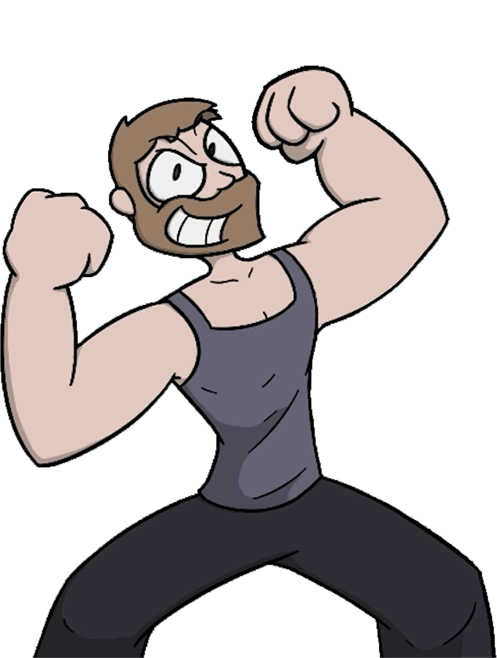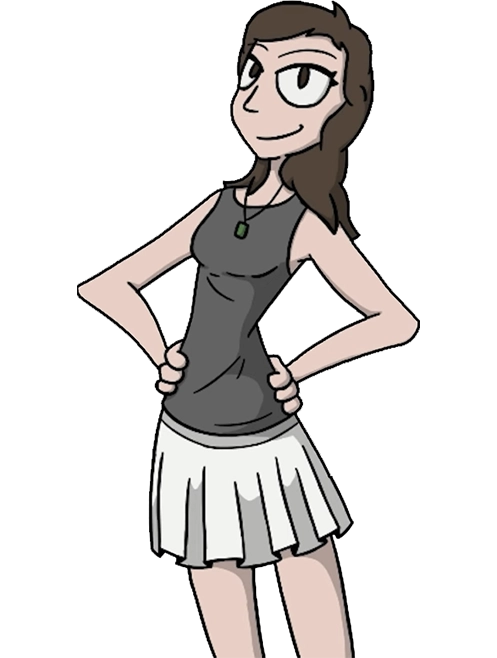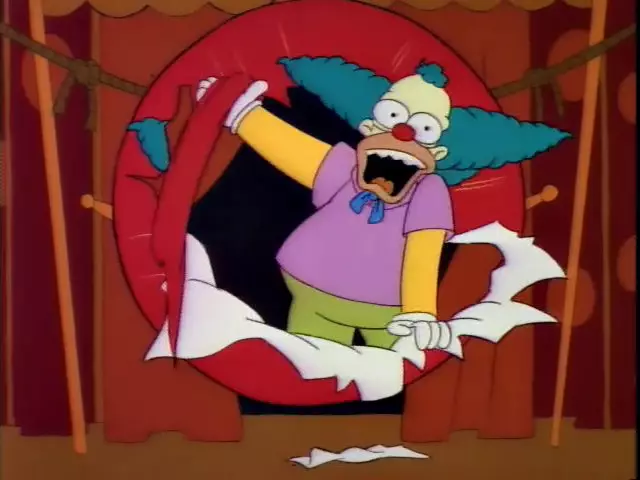My Recollection
Jewish people. I was just in the neighbourhood. A jazz musician I could understand.
The thing about creation is that it’s boring. The results aren’t, the results are usually something good like a cake or fully realised sense of self. It’s just getting there is a fucking dull stretch of innumerable imperceptible changes. You know what’s not imperceptible, fire. Smashing is pretty perceptible, too. Falling down is technically a stretch of innumerable changes but it’s happening fast enough for you to notice. A flower is beautiful, but if you try to watch one happen, you’re gonna lose viewers to the thing on fire.
Fire happens in a way that doing one’s homework doesn’t, but all people see is a kid that is weirdly into fire. Few children are actual pyromaniacs, of course, it’s just fire is one of the visible destructive forces that is easy to summon and contain. A lower tier demon, fire can be kept in a barrel or defeated with water. Much easier than that mad jerk electricity. Electricity is a cool demon, because he makes Sonic work on the TV, but it’s a scary demon. It’s mostly invisible and when it isn’t is when it’s likely to kill you. We saw a bat bridge the power lines one time and electricity came out and fried it. The corpse remained up there the whole summer as a reminder of the pecking order.
But… What if? What if somehow you got a hold of something that, by design, could generate small, non-lethal amounts of electricity?
One of my dad’s uncles owned a big second-hand store in Wooloongabba. It was a warehouse that stunk of time, where walls of Australian furniture and bric-a-brac created a labyrinth of estate sale mysteries. Giant punch bowls in bubbled orange glass cast kaleidoscopic light patterns on sinisterly dormant grandfather clocks as a show for an audience of obviously haunted patchwork dolls. It was everything you ever wanted but never needed, and we’d explore it like travellers in the vortex.
All these places are run by their own Herbert West, talented reanimators driven mad by their own confidence whose workshops are eventually strewn with the bodies of things no amount of new varnish will fix. The dust they gather is a shadowy pile of delusional maybes that, one day, they’ll be worth something. It was in this pile that my brother and I found The Machine.
It was a threatening mass of moving parts clinging to a wooden raft that ended in a crank. Rusted bells and a cracked horn identified it as an old phone, old-old, the kind you had to wind before talking to Mavis at the exchange. Mavis is dead, the exchange is a robot, and only two long, dangling wires remained to suggest this was ever connected to anything. Winding the crank brought The Machine to brief life, itself novel, but a distant crackling sound proved the more interesting matter. Sparks flashed between the exposed points at the end of the long wires. The mad contraption generated electricity.
* FZZZZZZZK* Went The Machine.
Convincing second-hand folk to part with anything, even something as otherwise worthless as the guts of a near century old phone, is no easy task. I’d like to say it was some amazing haggling skill, but in reality, it was just the sheer force of child want that wasn’t going to take no for an answer.
*FZZZZZZZK* Went The Machine.
It’s easy to see a boychild as a whorl of competing destructions and malices, but it’s really more about a combination of the visible and human curiosity. The answer to the question, “why did you set that on fire?” is always an easy, “to see what would happen.” Few children ever answer this way, though, as a brain that taps out a step beyond the immediate cannot manage any meaningful introspection.
*FZZZZZZZK* Went The Machine.
We had electricity right where we wanted it. The combination of ethereal beauty and ferocious power of the electrical arc is enough to satisfy a child for a long time, but having is finite, and infinite want will inevitably swallow it. What could this power do?
*FZZZZZZZK* Went The Machine.
I knew enough to know that it could animate tissue, so this quickly became my brother and I’s focus. Frogs? We didn’t know where we could get any dead ones and killing something just to animate it again seemed pointlessly cruel. The dogs? Admittedly, Angus and Andy looked like feral Wookie droppings and behaved like the monsters from the movie Critters, so there was less empathy, but they were Grandma’s beloved pets and wouldn’t have let us get that close. Naturally, neither of us wanted to hold the wires while the other worked the crank, as that was giving one brother the upper hand. An impossible ask. That left dad, and fortunately, he was asleep.
*FZZZZZZZK* Went The Machine.
Shall we tape the wires to dad? No, the only tape we have is the clear sticky stuff and that barely sticks to paper. Hmmm… Oh, one holds the wires to him? No, then one of us is delegated the objectively less fun task of dad duty. Then I noticed dad’s toe hanging out the end of the bed, and a large toenail atop it like a grey flat cap. Ah, that will hold the wires!
Some of the strongest moments of realisation come with the fusion of two different perspectives into one richer understanding. With the clarity of hindsight, we snuck into dad’s room, tucked wires under his toenail, and then used a crank to send a current down said. In any other circumstance, this is a blatant form of torture. We are torturing another human being for fun. But I remember being there and that thought just not occurring to me. It wasn’t, “let’s torture dad for fun” it was “I wonder what electricity does?”
With one violent twist of the crank, we found out.
The Machine was silent. Dad was not. I don’t know how much electricity one of those things generates, but I can safely describe it as “enough.” He howled into consciousness and thrashed through his blankets to get upright enough to see wires leading from his toe to a generator box held by two boys who looked more surprised than they had a right to.
And I used to consider things in Malcolm in the Middle to be unrealistic.
The Episode.
Kurt Vonnegut has a lecture called The Simple Shapes of Stories (recommended viewing, it’s 4 minutes long) in which he maps narrative arcs on a graph to generate a visualisation of the plot. This is a useful tool for understanding story structure and is a good way of seeing how similar superficially different stories are. It’s also a good method of understanding pacing and how much time is needed to express narrative developments.
If we consider a standard familial conflict in a sitcom like The Simpsons (though it can be any, really), the starting position, the status quo of the series, is the loving family. A common dramatic conflict in any family show is between members of the family, so the opening act will be developing the source of this conflict. The second act will be the tension rise via a complication, typically a failed attempt at resolution that threatens the status quo. This tension will be relieved by the final plot development which leads into a fairly swift denouement. Homer peeks at Maude’s tits. Marge and Homer attempt counselling, but this fails and threatens their marriage. Homer throws a fish away and all is forgiven.
I’ve mentioned the tropey family sitcom wrap-up before, the way people just realise they love each other and so a problem that filled 20 minutes of a show can be dealt with in the final minute, but I haven’t really gone into the sub-structure that makes that work. If you consider Vonnegut’s graph, the status quo functions as the start and the end point, and this means two things.
Firstly, there is a limit to how complicated the complication can get within the time available. One thing you will also notice if you google image the three-act structure, is that they are all lopsided. The climax has to be built to, and this fills the horizontal part of the graph. Whereas an ending needs to quickly follow the denouement, otherwise the pattern will start again, and you’ll screw up your pacing. What this means is that the distance the line can get from the status quo has natural limitations, and this means that the distance the conclusion has to journey can never exceed it.
The second, related, factor is that the end point being the same as the start means that resolving the narrative is a relaxation, an unravelling of the already done narrative work. Unlike other genres and media, a sitcom’s static world eschews the growth and change arcs that would require an ending somewhere different from the beginning. In a sitcom, all anything has to do is go back to normal. We know Homer and Marge love each other deeply, so the show has to work against that to establish the complication. Returning to the status quo takes less work because it’s the relaxation of the complicating tension, and so it requires less time on the horizontal.
The quickie resolutions are acceptable to audiences in these worlds because the complications are seldom that severe. Exceptions, like the severity of Homer and Marge’s discord in The War of the Simpsons, create structural errors that emphasise the rule.
Like Father, Like Clown does a lot of things well, but it falls down in the conclusion because it mistakes the shape of its story.
It exists in a period of the show where things like Bart and Lisa solving a Springfield local’s problem still requires internal reasoning, and the episode does a good job of covering this. It’s effectively a sequel episode to Krusty gets Busted, so it establishes the connection via Krusty’s obligation to a thank-you dinner with Bart. The focus on Krusty does him wonders as both a character in his own right and as a “Springfield character” for the show. It’s here we see more of him as the venerated TV legend, with elements of Saturday Night Live and The Tonight Show creeping in to what is supposed to be an afternoon children’s program. It’s also where we see some of the alienation and sadness that makes him who he is. His sobs at the dinner table over a lost father, and the perceived clash between his career and heritage, are genuine and the narrative treats them with respect.
The respect given to the emotional severity of Krusty’s situation is part of the problem, though. The narrative has to spend a lot of time, which it does well, on explaining Krusty, introducing his father, and establishing the conflict between the pair in a manner that emphasises the severity a decades long estrangement requires. All of this takes up a lot of horizontal and all of this is being imposed into a structure that cannot support it. Krusty’s status quo isn’t a happy relationship with his father, meaning that, unlike with fixing problems within the Simpson family, Krusty’s end point is a different one to his starting point.
Some narrative sleight-of-hand could have worked here, not to fix the problem but at least distract from it, but the writers opt for the exact opposite.
Having the process of reuniting Hyman with his son take the form of a reasoned argument does less to hide the lack of space than it does some kind of Penn and Teller-esque highlighting of it. The final point has to be something so overwhelmingly well written that it simply can’t exist, and it doesn’t. Ending the estrangement with a weak Sammy Davis Jr quote about Jewish suffering, when no amount of Rabbinical texts or emotional appeals would, is stupid. They could have tried an entertainer that maybe Hymen knew or at least somewhat respected, but the fulcrum of the work of this episode, a very heavy amount of work, is, “an entertainer, like your son.” Hyman doesn’t like entertainers. He is estranged from his son. Why would a clumsy retelling of the bullet points of Jewish history change any of that? None of these are questions I’d be asking had they not been made the actual point of the final act.
Stories have shapes. Like screwdriver heads, different ones do different things and will fit different purposes. They’re only explicitly better or worse when you try to use one inappropriately. Sitcoms have a simple shape, and this is fine. Not every meal needs to be a wild excursion to the limits of cuisine and expecting otherwise is demented. But that simple shape can only accommodate so much. A brief stray from the norm before a comfortable slump back to it. Like Father, Like Clown expects us to take Krusty’s pain seriously because we see it without comedic interruption. His father needed the same thing. He needed to slowly come around, perhaps see the good his son does, or take the time to reflect on what his stubbornness has cost him. But that would take time that the shape doesn’t have. A twenty-minute problem can be solved in one minute; a forty year one cannot.
Yours in being a little pisher, Gabriel.
Jokes, Lines, and Stray Thoughts.
The episode is based on the Al Jolson movie The Jazz Singer, the world’s first full-length talkie and probably only example of blackface being used relevantly.
Another faintly meta chalkboard gag.
The early season couch gags were still adorably banal.
“I hold in my hand, the final axe” is a beautiful opening line. Great example of in medias res because final implies previous. Dumps us in to a great joke about kid’s television and the treatment of Sideshow Mel.
Mel copping the handle and Krusty’s look are terrific sight gags.


The near birdlike appearance of Bart and Lisa laughing.

Leaning in to Krusty’s show as being a hodgepodge of tonight shows and sketch series.
Active reminders to the audience of prior events. Mostly now it’s taken for granted.
Krusty’s assistant is an interesting character and has a depth that suggests a more long-term thing.
There’s a fundamental tension between Bart’s youthful destructive nihilism and his worship of Krusty.
There’s a lot of serialised elements in this episode. I like the fact that Krusty can sort-of read, a great way of demonstrating narrative progress rather than stating it.
Bart’s head shakes weirdly when he moans about his shoes getting dirty again. Shudders without animation.

“You think it’s him?” after Krusty’s door knock is great. It’s the finish to a setup you didn’t know was a setup. Most of the show’s cleverer throwaways work like that because you get the surprise of the line coupled with the discovery of its role in a joke you didn’t know was happening. Great format.
The monkey is a good series of escalating jokes. Being in a bag, wearing rollerskates, and Krusty talking to him like he’ll be understood.
“Black velvet painting come to life” is great. I’ve a love for trash art that I can’t tell is ironic or not. Probably more my selfish need to prove the unlovable can be loved.
Orthodox Jews are nuts, it’s such an insular culture.
Seltzering himself in the bathroom is funny.
“A musician or a jazz singer” is a direct reference to the source story for this episode.
Krusty not leaving is a chuckle.
Duff Gardens continuity error.
I love Milhouse crying. He’s a fantastic psychic toilet, watching him suffer is just cream.
Krusty is still in his clown makeup part of the continuity, which changes after the mention of his on-air heart attack.
Following Krusty here is an obvious emphasis of his narrative focus, but it also gives him moments of pathos with little cutting humour. These are the kinds of moments a lot of sitcoms of the period wouldn’t and/or couldn’t do. Risky dips into the genuinely sad would rupture the mood and mostly upset their audiences.
Krusty breaking down at the Itchy and Scratch cartoon is a good example of actually sad but still funny at the same time. It’s a juxtaposition joke, all that’s required is a severe negative emotion to clash with something. This is a good example of how terrible, shocking things can be funny when they are acting as a functional part of a joke structure and not because terrible, shocking things are innately funny.
Bart hides Lovejoy’s shirt in the cartoon butthole dimension.

“I didn’t mean that literally” is a good example of a joke to cut the emotion. Depending on the episode’s goal, these will be given different levels of focus through framing and time. Light one’s, like Homer’s questioning Krusty about his intent to finish the meatloaf, are more a defence mechanism of the era and less a counter to the emotion of the scene. These days, sad things can happen in comedies and the world is better for it.
Is Yiddle’s work dressing children in Jewish blackface?
It’s weird they go from the attempt at reasoning with Hyman to the Deli caper then back to reasoning with him. Sloppily structured, should have started in the deli, moved to a costumed attempt at reasoning with Hyman, and so on.
Ah, when one had to go to the library to learn shit.
“A child should be pushed away with the left hand and drawn closer with the right.” This is the Talmud describing The Rainmaker

I wonder if Hyman sucks the dick blood. Religions are dumb.
“They finally made it” to the unending peace of the middle-east.
Hyman breaking down in realisation is fine, and really the only way to resolve this, but coming off the back of a Sammy Davis Jr quote is just shit. It’s what happens when writers put themselves in a hole. Like when someone writes a character who’s a genius, that’s hard because they’re not a genius. They wrote a story that ended with them having to use Jewish precedent to convince a Rabbi to end a decades long estrangement to his son in the space of about 4 minutes of screen time and maybe a few days of narrative time. With more space, you could have shown him weakening emotionally or losing arguments, but he’s as forcibly stubborn at the end as he is at the start. Plan your stories, or you’ll wind up using shaggy-dog escape tactics that spoil the emotional weight of the narrative.
I mean shit, use a Saul Bellows quote, link Hyman’s respect for something that isn’t being a Rabbi to his son. Anything.





5 replies to Like Father, Like Clown
Magnumweight on 12th November 201912 Nov 19 said:
As, ostensibly, an adult I, too, found the Sammy Davis Jr quote to be very weak as a turning point. It's not very profound or well spoken and this kind of sours me on the episode, one of my favorites as a child.
The way Bart shouts "No!" as Noah with the pop up book has stuck in my head for a couple decades now and I find myself sometimes saying it in a similar way when I wish to feign playful malevolence.
I believe this is probably the first episode that Mr Teeny is in as well, he is one of my favorite Krusty side characters
Gabriel on 12th November 201912 Nov 19 said:
In the director's commentary for "Once Upon a time in Mexico", Rodriguez mentions that he wrote himself into a hole by having his villain, played by Willem Dafoe, find a lookalike to swap identities with. Great idea, until you realise you now have to find a goddamn Willem Dafoe lookalike. One wound up working on his crew somewhere, but its's still a good example of writing yourself into a hole.
There was little, really nothing, that could have filled that gap in a satisfactory manner, so the story should have been restructured. It sucks to undo a bunch of work but it beats a flimsy ending.
Magnumweight on 12th November 201912 Nov 19 said:
Also the Rainmaker joke gave me an audible guffaw, great work
pocketbelt on 9th November 201909 Nov 19 said:
I haven't watched this episode in ages so I don't know if it's ever mentioned, but in Jewish folklore, cheeky trickster characters that make fools of demons and oppressors through wits and shenanigans alone are a recurring element. I feel like linking being a clown to that tradition would've been a better swing for that angle.
A good read, cheers, Gabe.
Gabriel on 12th November 201912 Nov 19 said:
It was just a really bad choice to make it a debate. I mean, 30-40 years of not seeing your son is an emotional issue, you aren't just gonna roll up with a formula that makes them smack themselves on the forehead. Emotional appeals can be cheesy. but they're also what happens in real life.
Comment on Like Father, Like Clown
To reply, please Log in